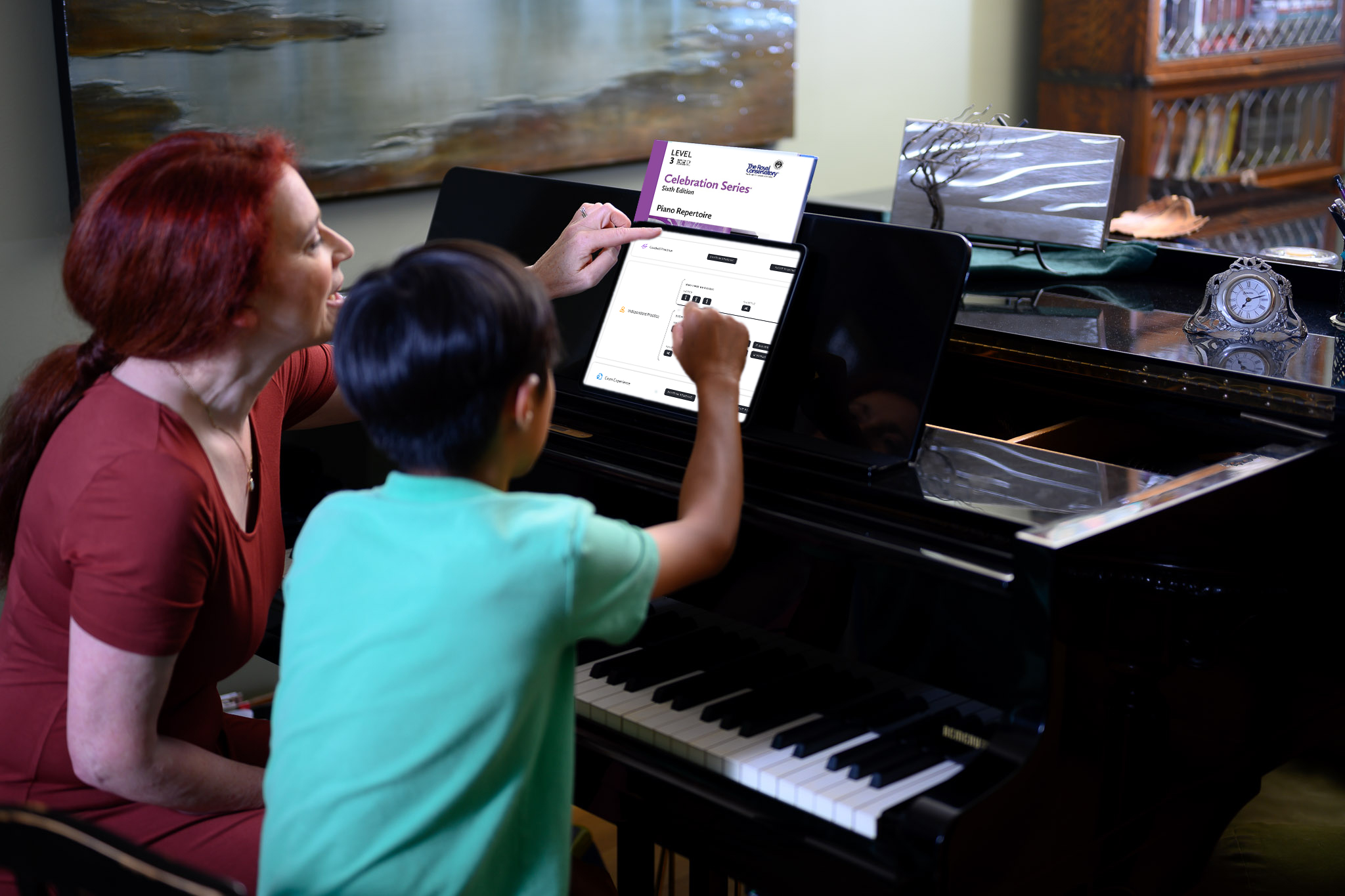
We all know that the true value of The RCM Certificate Program comes from the progress that students make during the preparation process. RCM students typically progress faster than non-RCM students, which increases their motivation, which inspires more progress, and so on.
Therefore, we should take some time to acknowledge and celebrate this progress with our students before they even take the exam!
Consider taking some time in a lesson, with parents present, to ask students, “Have you noticed how much you’ve progressed over the course of preparing for this exam?” Most of the time, they will say yes. That’s exciting for everyone, regardless of the exam result.
By taking the time to celebrate this win, students have already experienced tremendous value and positive reinforcement in their studies with you, even before they have taken their exam.
Highlight the Differences between School and RCM Exams
Let’s face it: with rare exceptions, students don’t look forward to school examinations as a way to gain feedback for future improvement. When students prepare for school exams, they are often stressed because the results will affect their transcripts and future academic and job applications.
In the lead-up to their RCM exam, take some time to remind your students that an RCM exam is not like their school exams.
Rather than something that may affect their permanent academic record, the RCM exam celebrates the progress students have made and provides an opportunity to receive feedback from a trained and experienced RCM examiner. The marks and the feedback students receive will be used to help prepare for the next steps as they continue with their musical studies.
Explain the Examiner’s Role
Going into their very first exam, remind your students that the examiner is on their team. They are not there to pass judgement, but to provide valuable feedback based on The RCM’s standards of excellence.
The RCM examiners are trained to make the examination experience a positive one from start to finish, regardless of students’ preparation levels. As such, they are there to support students through the process. Often, students will come out of their first exam pleasantly surprised at how relaxed the atmosphere was.
By explaining this to your students in advance, some of the pressure will be relieved before they enter the examination room, knowing that the examiner is playing a supportive role on their musical journey.
Sign in or sign up to join the conversation.